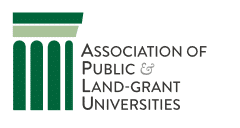Improved career outcomes for students―including higher salaries, improved rates of hire, and faster promotion tracks―are the ultimate goal of this initiative. Along with its partners APLU, USU, and Workcred, UPCEA brought together universities and certification bodies from across the nation to identify opportunities to embed certifications into undergraduate degree programs in the growing fields of healthcare, cybersecurity, manufacturing, and the liberal arts.
The ultimate output of the project is the development of a framework laying the groundwork for potential future phases to test the different models and practices identified to better align certifications and degrees. In the U.S., nearly 11.2 million adults who have a high school diploma or less also hold a professional certification or license. Yet there is often a lack of awareness of how professional certifications (not to be confused with certificates) can be used to achieve better educational outcomes for graduates of four-year universities.
With support from Lumina Foundation, UPCEA, the Coalition of Urban Serving Universities, Workcred, and the Association of Public and Land-grant Universities (APLU) hosted a series of meetings that included experts representing higher education institutions and accredited certification bodies to fulfill the following objectives:
- Forge relationships between higher education institutions and industry certification bodies to facilitate stronger university-certification body partnerships;
- Enhance strategies, data, and transparency through information exchanges and reporting so the requirements and value of both degrees and certifications are respected by academia and industry groups; and
- Summarize the key findings and themes in a framework that can be used for pilot programs seeking to align efforts across universities and certification bodies.
Resources
- Full Report: Embedding Certifications into Bachelor's Degrees - Certification-Degree Pathways Project
- Report Appendices
- One Pager on How Credential Types Differ
Created with support from the Lumina Foundation and in partnership with the following organizations:





